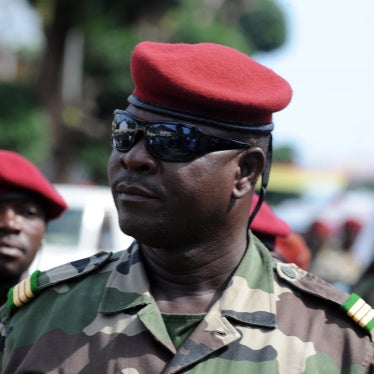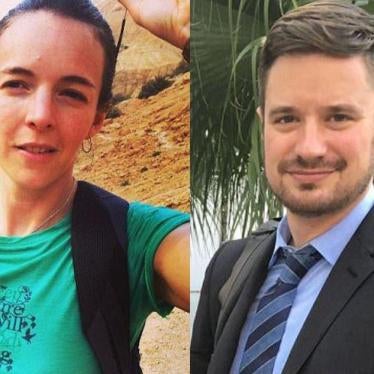President Alassane Ouattara’s government in Côte d’Ivoire has taken a series of measures to bolster the economy and good governance but has largely ignored one of the country’s main catalysts of political violence: the culture of impunity for those in power. The coming months will show whether the government will fulfill promises of impartial justice and ease the tensions that fuelled last year’s post-election violence, or continue down its current path of victor’s justice, further aggravating the situation.
Former President Laurent Gbagbo’s refusal to step down when Ouattara was proclaimed the winner of the November 2010 presidential run-off triggered six months of violence in which more than 3,000 people were killed. More than 150 women and girls were raped. Based on six field missions during the crisis, we documented the evolution of systematic human rights violations and identified thirteen high-level civilian and military leaders implicated in grave crimes. Gbagbo’s elite security forces and allied militias committed most of the serious violations during the first months of the crisis, and the Gbagbo camp’s longstanding manipulation of ethnicity led to hate speech that incited atrocities. But by the conflict’s end in May 2011, armed forces on both sides had committed war crimes and likely crimes against humanity. Civilians were targeted systematically on political, ethnic, and religious grounds, with widespread killings and rapes in Abidjan and in the country’s western region.
During his visit to western Côte d’Ivoire in April 2012, President Ouattara recognized the horrific abuses that marked the crisis and reiterated promises of impartial justice. Civilian and military prosecutors have charged more than 120 people from the Gbagbo camp with post-election crimes, including murder. But no pro-Ouattara forces have been charged with crimes committed during the post-election crisis, and several commanders that Human Rights Watch and others have implicated in overseeing extrajudicial executions and torture have been promoted to high-level positions in the new military.
On November 29, 2011, the Ivoirian government surrendered Gbagbo to the International Criminal Court to face charges on crimes against humanity. For many victims, the transfer was a significant step toward ensuring justice. However, by initiating proceedings only against Gbagbo – albeit while continuing investigations into crimes by both sides – the ICC reinforced the impression that prosecutions are only advancing against those who lost the post-election conflict.
As a result, victims from the losing side feel voiceless at home and abroad. A number of moderate Gbagbo supporters whom I interviewed referred to the proceedings as farcical and hypocritical. Most have no objection to Ouattara’s presidency and Gbagbo’s arrest – his refusal to relinquish power destroyed their livelihoods too – but they demand accountability for pro-Ouattara forces as well.
The absence of impartial justice threatens to drive these moderates toward militant, pro-Gbagbo hard-liners, who remain as committed today to inciting communal divisions as during the post-election crisis. While they now lack political and military power, they pose a threat to long-term stability. The unfortunate decision by political parties in Gbagbo’s former coalition to boycott parliamentary elections will increase many Ivoirians’ sense of marginalization which, together with the perception that only the losing side will pay for its crimes, may provoke future violence if recent history is any guide.
Over the past decade, two developments worked in tandem to undermine Côte d’Ivoire’s status as a pillar of economic and political stability in West Africa: The country’s once functional judiciary progressively succumbed to corruption and political influence, and Ivoirians increasingly resorted to violence to settle grievances over land and political power.
Political violence marked the aftermath of the 2000 presidential and legislative elections. During the 2002-2003 armed conflict and the years of “no war, no peace” that followed, war crimes and likely crimes against humanity were committed predominantly by the same armed forces that fought again in 2011. No one has been held accountable for any of these crimes. A sense of impunity developed for those with political power or guns, and burgeoning militia and self-defense groups often replaced the judiciary with vigilantism.
Returning to the rule of law is fundamental if Côte d’Ivoire is to break away from the country’s recent, bloody history. But, so long as prosecutors and courts appear to administer victor’s justice, deep political and social cleavages will remain and widen. While the Ouattara government and the ICC are right to prosecute those in the Gbagbo camp who committed serious crimes, there should be justice for victims on both sides.
Matt Wells is a West Africa researcher at Human Rights Watch.








